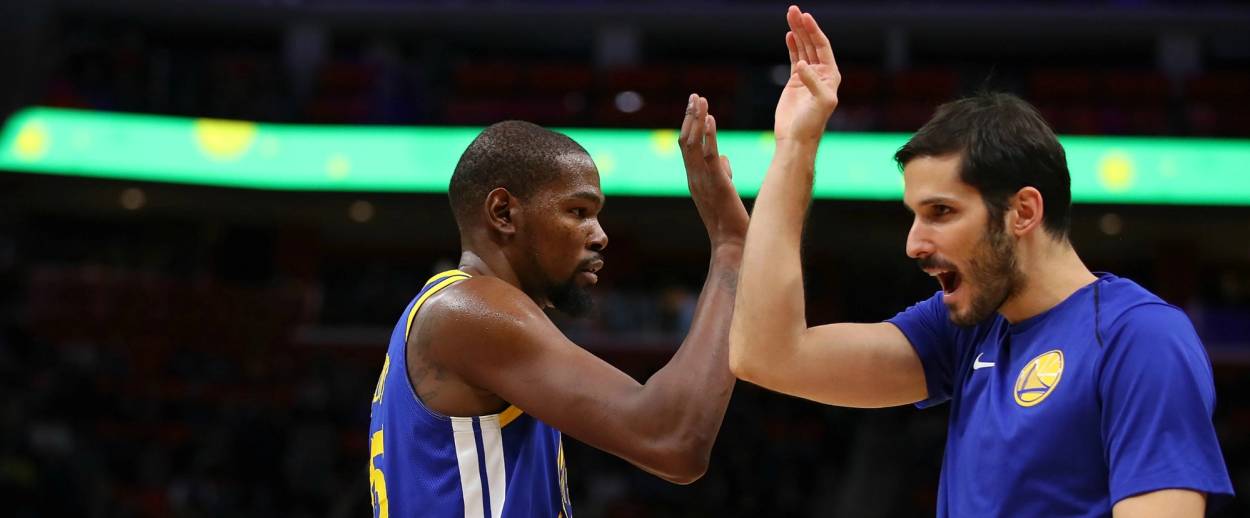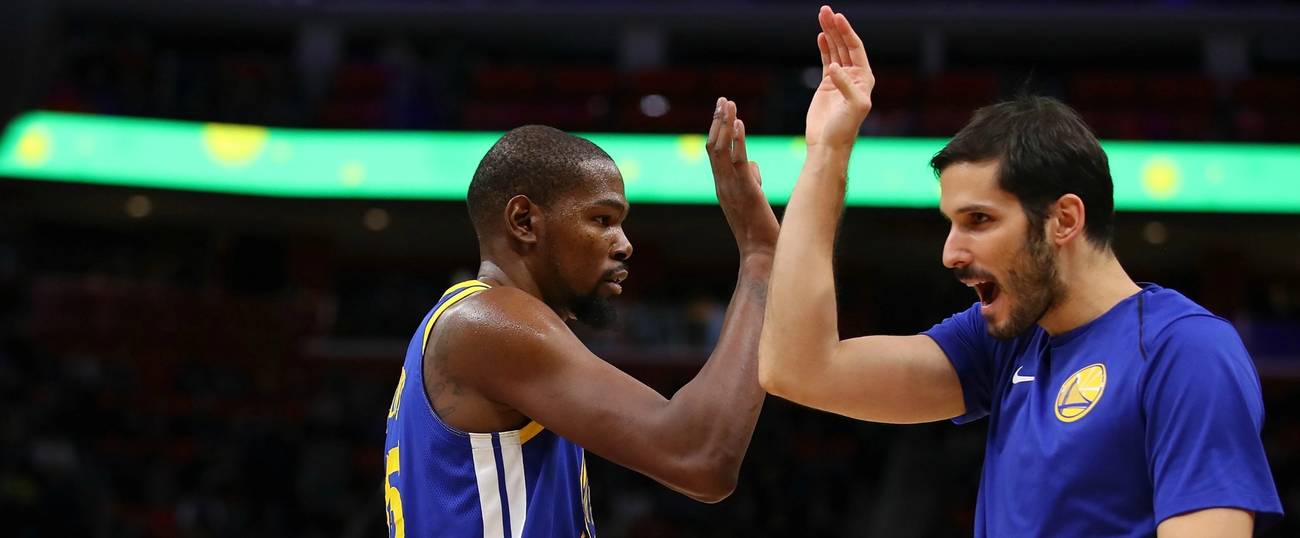Let Omri Casspi Guide Your New Year’s Resolutions
The first Israeli in the NBA is proof that you can change, with a little help from your friends




When Omri Casspi was picked by the Golden State Warriors last year, most Jewish sports fans applauded the move but paid it little mind. True, Casspi is the first Israeli in the NBA, and as such a source of unending pride, but he’d been in the league since 2009 and has slogged on as a capable but unremarkable journeyman in teams like the Sacramento Kings and the New Orleans Pelicans, a respectable benchwarmer but never exactly a household name.
What a difference a year makes.
The reigning champs didn’t only give Casspi a chance to prove his mettle; they gave him an opportunity to grow and change as a player. Consider the numbers: Whereas pre-Warriors Casspi scored 35 percent of all shots from nine feet or more, with 29 percent from downtown, Casspi now shoots threes less than 11 percent of the time. Less than a quarter of his shots this season required him to hold the ball for more than two seconds, and in nearly 60 percent of his attempts he didn’t even need to dribble. Instead of the guy who tries his luck from afar, he’s become a master at exploiting any moment of confusion in the opposing team’s defense.
You hardly need to love basketball to take Casspi’s transformation to heart. As most of us polish off our brand new lists of new year’s resolutions, Casspi’s surge—he now routinely takes his place among Kevin Durant and Steph Curry in the team’s starting lineup—can teach us two or three valuable lessons.
The first, and obvious one, is that each of us is capable of great and surprising things we can’t even begin to imagine. Anyone, Casspi included, watching videos of the young man at play three or five years ago would’ve been hard-pressed to believe that he has in him the ability to cut to the rim so effectively. Casspi’s coaches, however, saw in him hidden abilities, and enabled him to unleash them. To his endless credit, he had enough faith, in himself and in the system, to let growth happen.
Which brings us to the second lesson: No one grows alone. You may not have world-class guys like Durant or Curry or Andre Iguodala to help you along on your quest, whatever it may be, but as long as you have people who believe in you and are willing to take a chance on you, your odds are infinitely better.
But not, of course, without the third and most important lesson: Success is never a solitary project. The Warriors are such a historically superior team precisely because they’ve figured out how to harness so many wildly talented players into a machine that is always larger than the sum of all its gleaming parts. They play together, an extraordinarily difficult goal for even the most thriving teams to achieve.
Next time you try to shoot a three at life’s torrent of trouble, then, remember Casspi, and remember that change is possible. Cutting to the rim may not be as hard as you think, especially if you’re on the right team.
Liel Leibovitz is editor-at-large for Tablet Magazine and a host of its weekly culture podcast Unorthodox and daily Talmud podcast Take One. He is the editor of Zionism: The Tablet Guide.